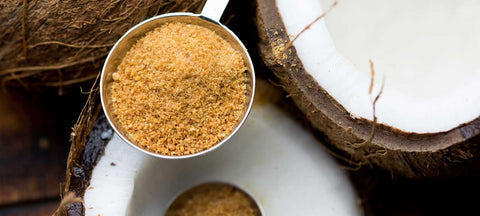When it comes to natural sweeteners, agave nectar and coconut sugar have gained popularity as alternatives to refined sugar. Both are derived from natural sources and offer distinct flavors and nutritional profiles. In this article, we delve into the differences between agave nectar and coconut sugar, helping you make an informed choice about which sweetener to incorporate into your recipes and lifestyle.
Agave Nectar: A Sweet Elixir
Agave nectar is a natural sweetener derived from the sap of the agave plant, primarily grown in Mexico. It is known for its syrup-like consistency and sweet taste. Here are some key characteristics of agave nectar:
Sweetness and Flavor: Agave nectar is exceptionally sweet, often sweeter than table sugar. It has a neutral flavor profile with subtle hints of caramel or honey, depending on the variety. This mild taste allows it to blend well with various recipes.
Glycemic Impact: Agave nectar has a low glycemic index, meaning it does not cause a significant spike in blood sugar levels. However, it is still important to consume agave nectar in moderation, as excessive consumption can lead to adverse effects on blood sugar control.
Fructose Content: Agave nectar is primarily composed of fructose, a natural sugar found in fruits and some vegetables. The high fructose content gives it its sweetness. While fructose is naturally occurring, excessive consumption can have negative health effects, such as liver complications and increased triglyceride levels. Moderation is key.
Coconut Sugar: Nature's Sweet Gem
Coconut sugar, also known as coconut palm sugar, is derived from the sap of coconut palm tree blossoms. It has gained popularity as a natural alternative to traditional sugars. Let's explore its unique qualities:
Flavor and Aroma: Coconut sugar has a rich caramel-like flavor with a hint of butterscotch. It offers a distinct taste that can enhance the flavor profile of baked goods and beverages.
Glycemic Impact: Coconut sugar has a lower glycemic index compared to refined sugar, meaning it causes a slower rise in blood sugar levels. However, it is important to note that coconut sugar still contains carbohydrates and should be consumed in moderation by individuals with diabetes or those watching their blood sugar levels.
Nutritional Content: Coconut sugar contains small amounts of nutrients such as iron, zinc, and potassium, along with some antioxidants. While these levels may be relatively low, they provide a slight nutritional advantage over refined sugar.
Comparison and Usage:
Sweetness Level: Agave nectar is sweeter than coconut sugar, so you may require less agave nectar compared to coconut sugar when using them as a sweetener in recipes.
Flavor Profile: Agave nectar has a milder taste, allowing it to blend well with a variety of recipes. Coconut sugar adds a distinct caramel-like flavor, which may be preferable in certain baked goods or beverages.
Consistency and Usage: Agave nectar has a syrup-like consistency, making it easy to incorporate into recipes as a liquid sweetener. Coconut sugar resembles granulated sugar and can be used as a direct replacement in recipes that call for traditional sugar.
Individual Health Considerations: While agave nectar has a lower glycemic impact, it is important to moderate fructose consumption. Coconut sugar offers a lower glycemic index, but it still contains carbohydrates. Individuals with diabetes or those monitoring their blood sugar levels should consult with their healthcare provider to determine suitable consumption levels.
Agave nectar and coconut sugar provide natural alternatives to refined sugar, each with its own unique characteristics. Agave nectar offers a neutral taste and low glycemic impact, while coconut sugar boasts a rich caramel-like flavor and slightly lower glycemic index. Both can be enjoyed in moderation as part of a balanced diet. Consider the flavor profile and desired consistency when deciding which sweetener to use in your recipes. Embrace the sweetness of nature and experiment with agave nectar and coconut sugar to add natural and delicious sweetness to your culinary creations.



